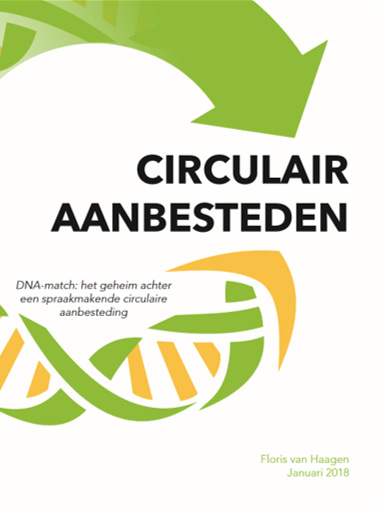On 26 January 2018, Floris van Haagen graduated from TU Delft with the thesis Circular Tendering. Floris graduated from the Faculty of Architecture and received interdisciplinary support from a TU Delft from a legal, structural and environmental expert. Copper8 was his external supervisor.
For his thesis, Floris investigated the factors that lead to a successful circular tender. In order to determine the success factors, he analyzed six circular tenders:
- The Gemeentehuis Brummen transformation assignment (May 2011)
- The Alliander Duiven relocation assignment (July 2011)
- The Alliander office furniture tender (December 2013)
- The Temporary District Court in Amsterdam development assignment (April 2014)
- The Alliander Bellevue renovation assignment (July 2015)
- The UMCU office furniture tender (June 2016)
On the basis of the case studies he investigated and a number of in-depth interviews, Floris came up with some 21 recommendations for the design of a successful circular tender. Floris’s findings provide strong and independent confirmation of the method developed by Copper8. Here are some of the most important recommendations:
- At the company level, formulate a (broadly) supported vision with regard to the circular economy before the tendering process begins;
- Choose a procedure in which the selection and award phases are independent;
- Translate the company’s circular economy vision into concrete circular ambitions for the assignment;
- In the tender, ask an open question so that the market is given the opportunity to use its knowledge and expertise, but also clearly formulate the frameworks on which the solution should be built with regard to planning and budget, among other things;
- In the selection phase, ask for a vision regarding circularity; try to make it linked as concrete as possible with the vision of the client;
- Organize at least one plenary meeting with the selected candidates;
- Ensure that the award framework includes technical content, process-related aspects and, if possible, financial-economic aspects in full;
- Combine a quantitative and qualitative assessment of circularity.
You can find the complete Circular Tendering thesis here and the information from TU Delft here.
